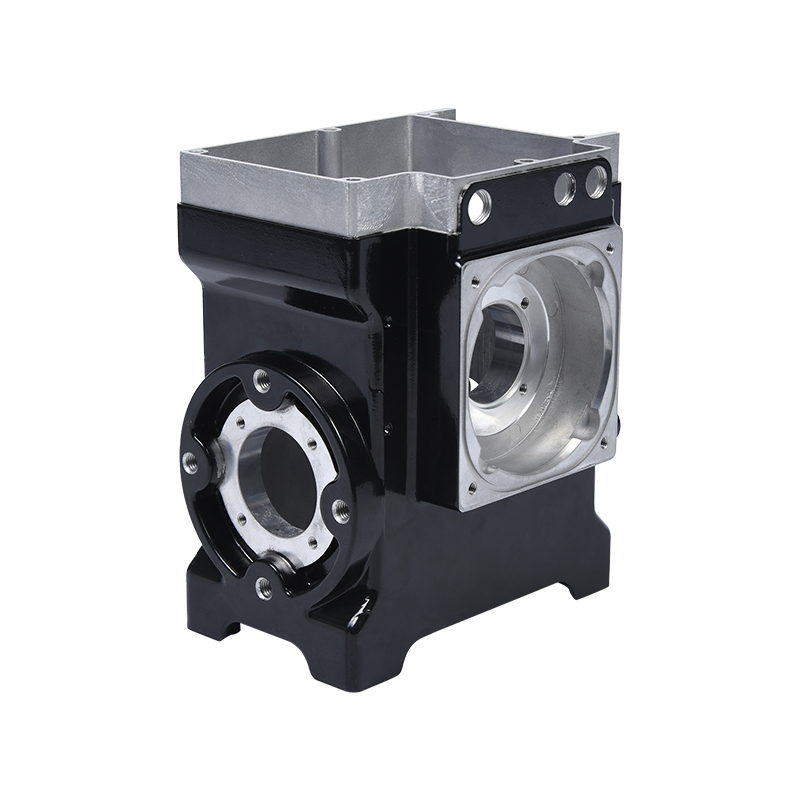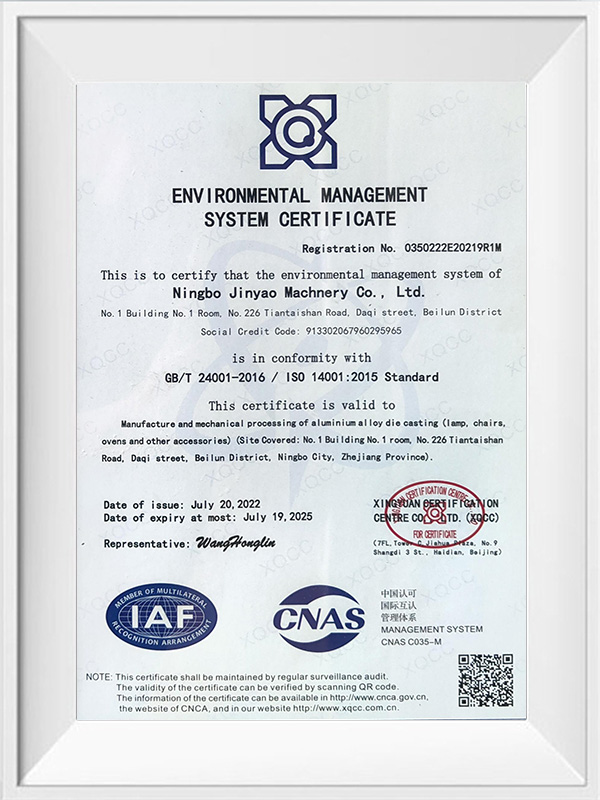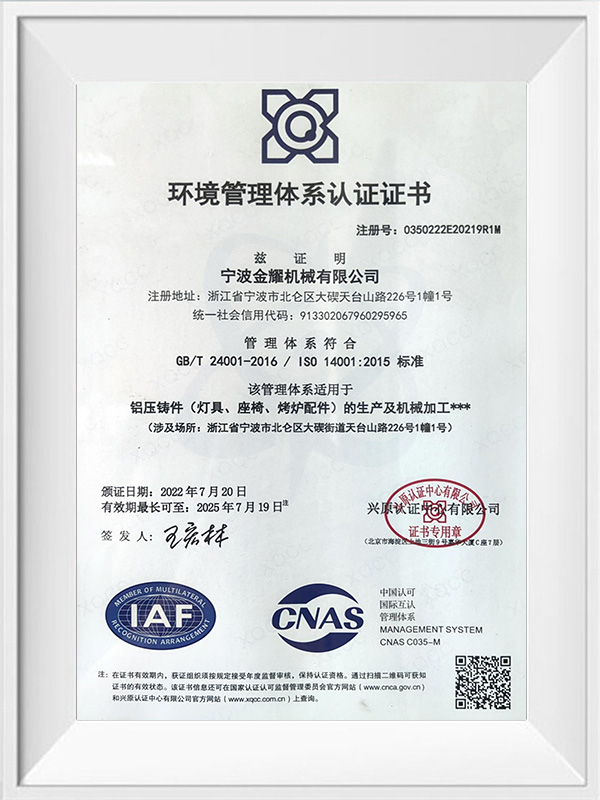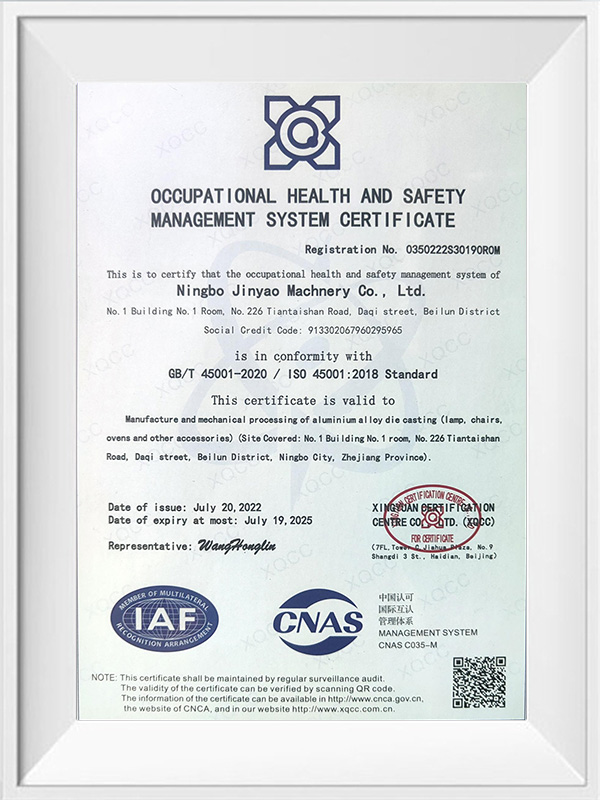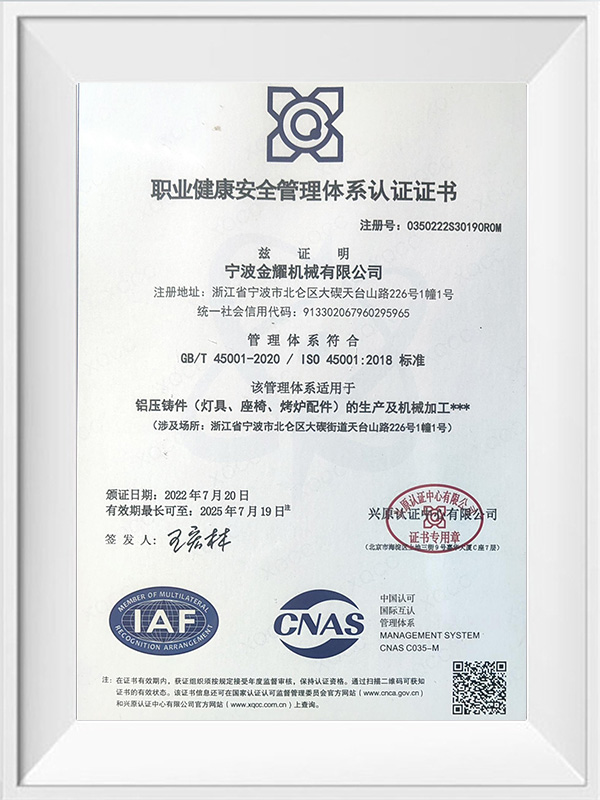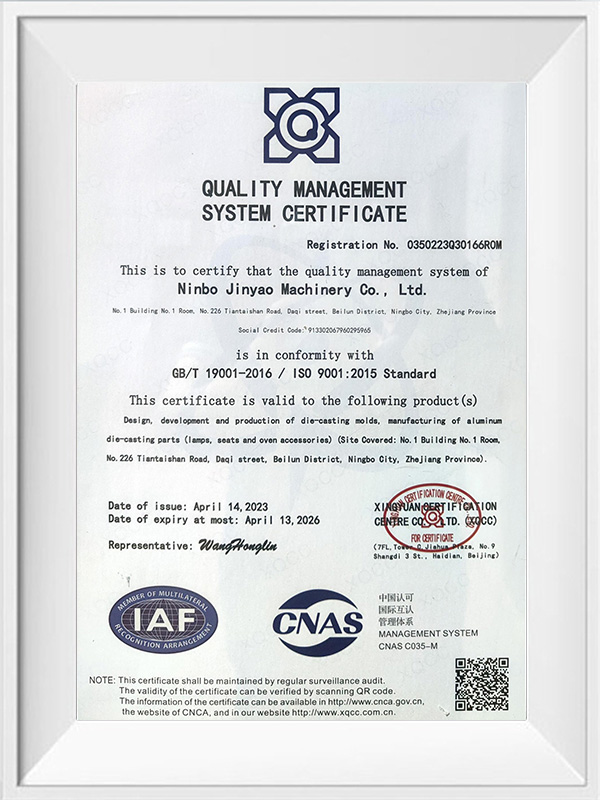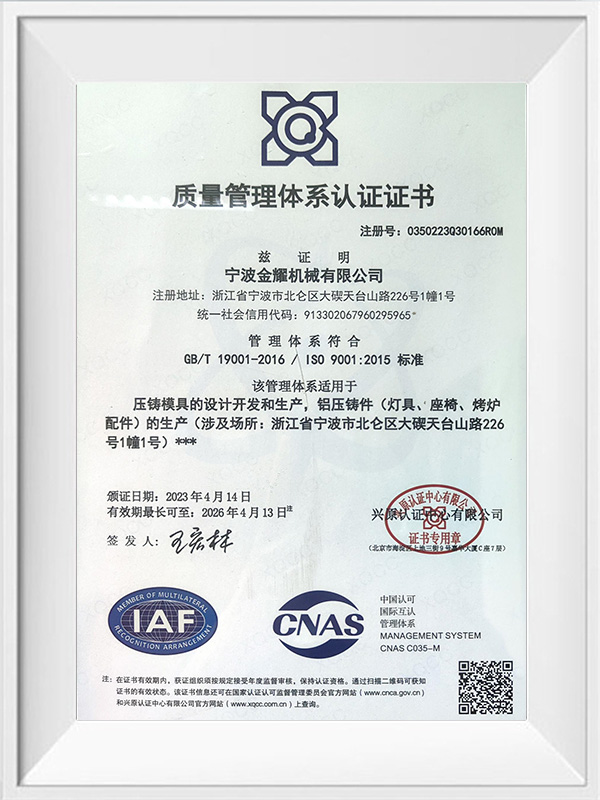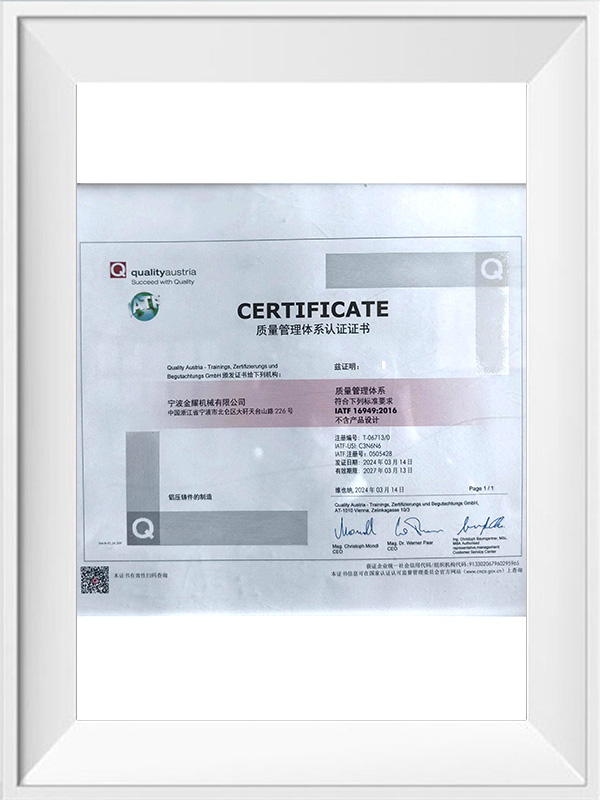Ningbo Jinyao Machinery Co., Ltd. is a China Industrial Machinery Die Casting Components Manufacturers and Engineering Machinery Die Castings Factory. And is an enterprise integrating industry and trade, dedicated to the production of precision castings of aluminum alloy materials and the design and manufacture of high-pressure die-casting molds. Adopting advanced vacuuming, pin extrusion, and high-pressure spot cooling processes, it is a large-scale professional production base for diversified casting in China. It integrates a precision casting factory and a mechanical processing plant, and can produce precision castings and various types of castings annually. More than 10,000 tons, mainly exported to Japan, Sweden and other countries. Among the customers we cooperate with are many OEM customers of trains, cars, forklifts, outboards, communication equipment, lamps, furniture parts and engineering machinery, including the world's top 500 companies. , has become an important supplier of their precision castings in China.
Industrial Machinery Die Casting Components Manufacturers
- Traditional automobile die castings
- New energy automobile die castings
- Communication housing die castings
- Electric scooter die castings
- Bicycle power motor die castings
- Motorcycle accessories die castings
- Motor housing die castings
- Engineering machinery die castings
- Lighting die castings
- Outboard motor die castings
- Furniture accessories die castings
- Grill accessories die casting
- Photovoltaic inverter die castings
Engineering machinery die castings refer to precision metal components used in various types of construction machinery equipment. These die-cast components play a crucial role in the manufacturing of large machinery such as excavators, loaders, cranes, and bulldozers. Common die castings include engine parts, transmission system components, hydraulic system housings, structural components, and key connecting parts. These components not only need to endure substantial mechanical loads but also require exceptional wear resistance and impact toughness to ensure the safety and reliability of the equipment during high-intensity operations.
Die-cast components for engineering machinery offer high precision and consistency, maintaining product quality in large-scale production. Additionally, the die-casting process allows for the creation of complex geometric shapes to meet the specific needs of engineering machinery. Surface treatments such as anodizing, plating, and painting further enhance the corrosion resistance and aesthetic quality of the die castings.
In terms of material selection, aluminum alloy is one of the some commonly used materials. It combines the advantages of being lightweight and strong, which effectively reduces the overall weight of the machinery, improves operational efficiency, and enhances mobility. Its thermal conductivity and corrosion resistance also make it suitable for complex working environments.
In the production process, mold design and manufacturing are critical. Due to the complex shapes and high dimensional precision required for engineering machinery components, mold design, and manufacturing must be of high technical quality. The structural design must ensure the smooth filling of the mold cavity with molten metal during the die-casting process and facilitate easy demolding after solidification. Moreover, high manufacturing precision is essential to ensure the dimensional accuracy and surface quality of the die castings.
In summary, engineering machinery die castings, with their diverse material options and precise manufacturing processes, provide robust support for enhancing and developing the performance of construction machinery.
-
Die Casting Mold Guide 2026: Components, Design & TypesView More
In the rapidly advancing manufacturing landscape of 2026, die casting technology remains the cornerstone for producing high-volume, dimensionally precise, and structurally sound non-ferrous metal components. As industries like electric vehicles (EV), 6G telecommunications, and aerospace demand light...

-
How Do Engine System Die Castings Improve Strength and Durability in Modern Engines?View More
As modern engines continue to evolve toward higher efficiency, lighter weight, and longer service life, the demand for components with exceptional strength and durability has never been higher. Among the many manufacturing technologies available, engine system die castings play a crucial role in mee...

-
What Are the Key Advantages of Using Die Castings in Outboard Motors?View More
Outboard motors are essential for marine transportation, powering boats efficiently while enduring harsh marine environments. One of the critical aspects in designing high-performance outboard motors is the use of die cast components. Die casting is a manufacturing process where molten metal is inje...


 English
English Español
Español Deutsch
Deutsch русский
русский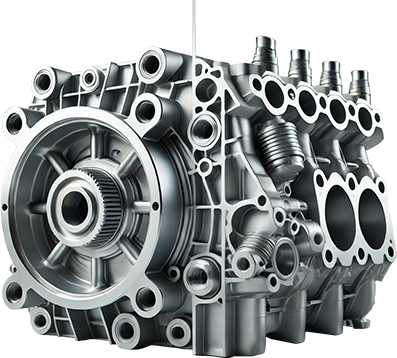
 Traditional automobile die castings
Traditional automobile die castings New energy automobile die castings
New energy automobile die castings Communication housing die castings
Communication housing die castings Electric scooter die castings
Electric scooter die castings Bicycle power motor die castings
Bicycle power motor die castings Motorcycle accessories die castings
Motorcycle accessories die castings Motor housing die castings
Motor housing die castings Engineering machinery die castings
Engineering machinery die castings Lighting die castings
Lighting die castings Outboard motor die castings
Outboard motor die castings Furniture accessories die castings
Furniture accessories die castings Grill accessories die casting
Grill accessories die casting Photovoltaic inverter die castings
Photovoltaic inverter die castings